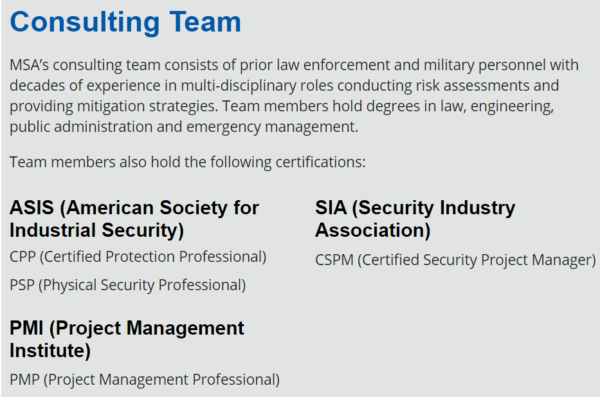
As a consultant, you have the rare opportunity to run your own business while working with large organizations. You get to explore your industry while developing new skills and connections. To keep growing your business and your opportunities, it’s important to master the art of consulting services sales.
But how can you manage to do that when you’re already working hard handling your consultant work? Wouldn’t it be nice if you could just follow a plan that’s been laid out for you in advance?
That’s exactly why you should take the time to develop a high-quality sales strategy for your consulting business. Attracting new clients takes forethought. When you design your consulting services sales strategy, you’re laying the groundwork for long-lasting success.
To start, you can try these seven tips to build the sales strategy that will work for you.
Get new clients and repeat business with all the tools and marketing advice you need, all in one place.
1. Be prepared to sell
Consulting is a business, even if you’re alone with no co-workers. That means that to be a consultant, you also need to be your own salesperson. If you haven’t spent time as a salesperson previously, that can be intimidating. However, selling yourself only requires four things:
- Confidence
- Resilience
- Networking
- Strategy
Once you’ve identified your niche and the pain points you can address, you can develop a solid consulting services sales strategy. From there, your confidence in your services and your network will do half the work of selling for you. Meanwhile, resilience will help you bounce back from the inevitable rejections any consultant faces.
2. Find your niche
With consulting, specialization is critical to finding your audience.
While you likely have a wide variety of skills and tools, focusing on your strongest talents will help you appeal to potential clients. After all, these clients have specific problems and they need specific solutions. The more specific you can make your niche, the more likely you are to secure clients in your preferred industry.
You’re also more likely to get referrals when you brand yourself as a specific solution for niche problems. As you successfully help more clients, you’ll become their go-to person and the first recommendation they give to their colleagues.
You can identify a niche to fill by asking yourself four questions:
- What are your core competencies? These are the skills you can use as a consultant.
- In which industries do you have experience? It will be easiest to find traction as a consultant in industries with which you’re familiar.
- What problems are common in that industry that you can solve? “Problems” can include inefficient processes, processes that will become problems as technology changes, or underutilized resources.
- What part of your skillset is hardest to master? If you have a skill or certification that’s hard to come by, capitalize on it in your consulting.

By identifying how you can solve a specific problem more efficiently than anyone else, you discover your unique selling proposition (USP). That will help guide the rest of your consulting services sales strategy for your business.
3. Identify and solve pain points
Once you know your niche, you can become more specific. Most problems have several potential approaches. To sell your consulting service, you need to find the specific pain points of your potential clients and outline how you’re going to help them solve these problems.

For example, is there a problem with the speed of communication in your industry? Set up a process that allows you to respond to clients quickly and effectively.
Is there a bottleneck in a process that can cause the whole business problems? Have a few solutions sketched out in advance.
When you talk to a potential customer, you’ll be prepared with these pain point solutions and you’ll be able to highlight them. That can be the detail that helps you secure the client.
4. Advertise wisely
Your advertising strategy should take three things into account:
- Your niche and its accompanying target audience
- Your goals for your business
- The marketing methods available to you
Are your current and potential customers more likely to respond to social media marketing, or should you focus more on email marketing? The advertising and sales strategy used by a millennial lifestyle and fashion consultant can look very different from that of an IT specialist consultant with thirty years of experience.
No matter what your specialty is, however, there are three types of marketing strategies that can work for everyone: networking, online advertising, and content marketing.
If you’re struggling to develop a more nuanced advertising plan, start simple and set monthly or weekly goals for:
- How many prospective clients to contact
- How much engagement with online ads increases
- How much website traffic you receive
- How many new or returning clients you secure
Setting goals is the first step to building your visibility as a consultant. As you continue reaching out to potential clients and developing your online presence, you’ll collect more data on what has been working and what hasn’t. From there you can refine and build on your strategy until you’ve found what works best for you.
5. Set and discuss your prices with care
As a consultant, you’re not pricing yourself based on what a standard employee is earning. Instead, you should focus on the value you’re bringing to your clients. If you can provide a service that saves a company tens of thousands of dollars annually, then you can justify charging your clients accordingly.
However, you also need to convince potential clients of that value. When discussing your services, take time to emphasize the costs of not hiring you. Explain the problems they are facing in terms of current costs or potential future losses. By outlining how you will help their business reduce these costs, your services will seem downright inexpensive in comparison.
6. Get personal
Once you have a prospect, it’s time to narrow down your pitch. While you should already be prepared with solutions for general industry pain points, personalizing your approach to a company or individual can make or break a sale.
In most companies, there is a specific person with the power to hire you: the decision-maker. This is the person you need to target. While selling your services to other members of the company can be helpful, the only way to secure the client is to convince the decision-maker.
You can tailor your pitch by answering a few questions.
- Who can say yes to you?
- How do they like to communicate?
- What’s making their life harder?
- What would be their ideal solution to the problem?
- How can you solve their problem in particular?
If you’re armed with this information, you can be confident about initiating a conversation with the decision-maker. Preparation makes all the difference.
7. Put it all together
Now that you understand the basics of selling consulting services effectively, take the time to apply them to your own business.
Identify your niche, your unique selling proposition, and two goals you can set for your marketing strategy. You might be surprised by how your consulting services sales improve with just a few minor tweaks to your marketing approach.
To get a comprehensive overview of what you need to do to boost your online marketing efforts, check out Constant Contact’s The Download — a free guide and playbook specifically made for businesses offering professional services.




